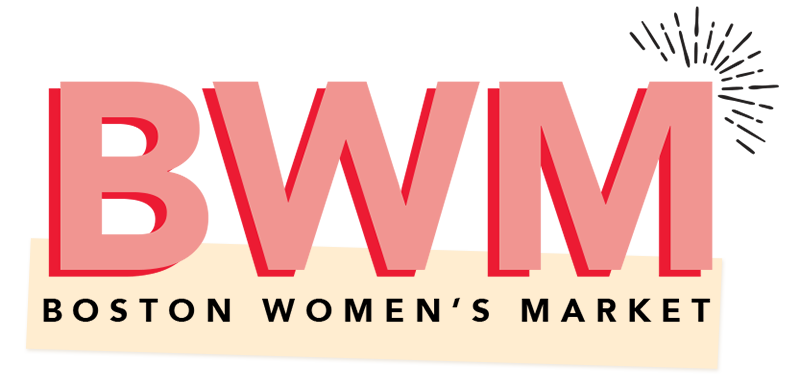SEO Essentials & Strategies Every Small Business Owner Should Know
BY CARA LOFFREDO
BOSTON WOMEN’S MARKET
You’ve heard the term SEO, but what does it really mean for your small business? Search Engine Optimization goes beyond just adding keywords to your website—it’s about making sure your business gets found online.
If you’ve ever found yourself wondering how to get your business to show up on Google without hiring an expensive agency or becoming a tech wizard—good news: you’re not alone, and it’s totally doable.
Search Engine Optimization (SEO) is one of the most powerful ways small businesses can drive consistent, organic traffic to their website. It helps your ideal customers find you—right when they’re searching for exactly what you offer. Whether you're selling handmade candles, running a local service business, or launching your new coaching program, understanding the SEO basics can be a game-changer.
In this post, we’ll break down essential SEO strategies that every small business owner can use—and we’ve included a handy checklist worksheet at the end to help you put these strategies into action.
🔍 Why SEO Matters for Small Businesses
It builds trust and credibility: Showing up in search results gives your brand more authority.
It’s cost-effective: Unlike paid ads, organic traffic doesn’t cost you every time someone clicks.
It’s long-term: With some effort upfront, SEO continues to pay off over time.
It levels the playing field: You don’t need a huge budget to show up—just smart strategy.
🚀 Core SEO Strategies to Get You Started
1. Start With Keyword Research
Know what your audience is searching for! Use free tools like Ubersuggest, Google Trends, or AI tools like ChatGPT to brainstorm keywords. Don’t forget about long-tail keywords—they’re more specific and often easier to rank for (e.g., “eco-friendly toddler clothing” instead of just “clothing”).
2. Optimize Your Website Content
Make sure your most important pages (homepage, product/service pages, and blog posts) include relevant keywords in the:
Page title
URL
First paragraph
Headings
Image alt text
Meta description
3. Add Fresh Content (aka Blogging!)
Blogging is a great way to keep your website active and target new keywords. Share tips, how-tos, behind-the-scenes looks, or product spotlights. Not a writer? AI tools like Frase, Jasper.ai, or Writesonic can help you generate content faster.
4. Get Local With SEO
If your business serves a specific location, make sure your Google Business Profile is up to date, your website lists your city or region, and you're getting reviews from happy customers.
5. Use AI to Work Smarter
AI tools are changing the game for small businesses. Use them to:
Brainstorm blog ideas
Create outlines and first drafts
Generate product descriptions
Write SEO-optimized titles and meta descriptions
Audit your site (try Diib, SurferSEO, or CanIRank)
✅ The SEO Essentials Checklist
Here’s your go-to post-workshop worksheet to help you take action:
🔍 Keyword Strategy
☐ Identify 5–10 core keywords related to your products/services
☐ Research long-tail keywords
☐ Use AI to generate keyword variations
☐ Map keywords to specific pages on your website
📝 On-Page Optimization
☐ Add keywords to page titles, H1s, URLs, first paragraph, and alt text
☐ Write meta titles + descriptions
☐ Use clear H2s and H3s to organize content
☐ Ensure image alt text is descriptive
🛍️ Product & Service Pages
☐ Write unique, keyword-optimized descriptions
☐ Use local keywords if applicable
☐ Add FAQs to support SEO and conversions
🖥️ Technical SEO
☐ Ensure your site is mobile-friendly
☐ Improve page load speed
☐ Submit sitemap to Google Search Console
☐ Fix broken links or 404 errors
✍️ Blogging & Content Creation
☐ Brainstorm blog topics using keyword research
☐ Post at least once/month
☐ Use AI to help draft and optimize posts
☐ Add internal links to other pages
📍 Local SEO (if applicable)
☐ Update your Google Business Profile
☐ Collect and respond to reviews
☐ Add your business to local directories
🧠 AI Tools to Explore
☐ ChatGPT for content generation + keyword ideas
☐ SurferSEO or Frase for content optimization
☐ Jasper or Writesonic for quick blog writing
☐ Diib or CanIRank for audits and SEO plans
📈 Tracking & Improvement
☐ Set up Google Analytics + Search Console
☐ Track your keywords and top pages
☐ Refresh older content regularly
☐ Stay informed on SEO updates
💬 Bonus Tip: Keep It Simple
You don’t have to do everything at once. Start small—pick one blog post, one page, or one product description to improve. SEO is a marathon, not a sprint!
GET OUR SEO
CHECK-LIST
WATCH THE WEBINAR
Tap Into Your SEO Potential
Wed, April 23, 6:30 - 7:30pm
Lead by Cara Loffredo, Boston Women’s Market
You’ve heard the term SEO, but what does it really mean for your small business? Search Engine Optimization goes beyond just adding keywords to your website—it’s about making sure your business gets found online. In this hands-on workshop, you’ll learn how to identify and fix common SEO mistakes, implement smart strategies, and boost your website’s visibility. Perfect for small business owners with a do-it-yourself attitude, this session will equip you with the tools to improve your search rankings and attract more customers.


